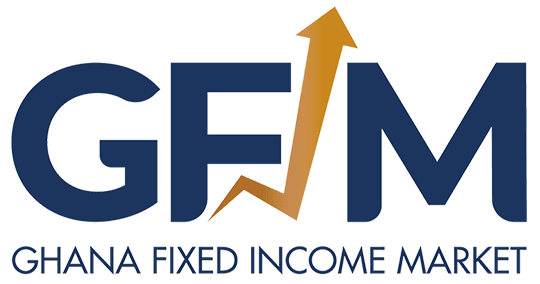
Ghana’s fixed income market on Tuesday, October 14, 2025, saw concentrated trading in medium to long-term government bonds, with a 15-year note attracting the highest single-security volume as investors positioned portfolios for an environment where yields remain elevated despite improving macroeconomic fundamentals.
The 2023-GC-12 government bond, maturing February 2, 2038, recorded trading volume of 283.61 million Ghana cedis, making it the most actively traded security across all fixed income categories for the session. This robust activity in a long-dated instrument suggests institutional investors view current yield levels as attractive entry points for longer-duration exposure.
New government notes and bonds dominated the day’s trading, with three securities accounting for the bulk of activity. Beyond the 2038 bond, the 2023-GC-1 note maturing February 16, 2027, saw volume of 115.24 million cedis, while the 2023-GC-2 note maturing February 15, 2028, traded 77.38 million cedis. Yields across these new government securities ranged from 15.01 percent to 16.37 percent, reflecting the elevated rate environment that has characterized Ghana’s fixed income market throughout 2025.
The sell and buy back market, which facilitates short-term liquidity management through repurchase agreements, posted substantial volumes. Three securities stood out: the 2023-A-1 note generated 238.81 million cedis in repo transactions, while the 2023-A-2 note saw 251.69 million cedis. The 2023-GC-6 bond added another 39.47 million cedis in repo activity. Yields in this segment ranged widely from 10.92 percent to 29.50 percent, indicating varied collateral quality and term structures.
Treasury bills, which typically anchor Ghana’s money market, maintained their position as reliable trading instruments across all three tenors. Bills maturing in the fourth quarter of 2025 through the second quarter of 2026 recorded significant activity, though specific volumes weren’t highlighted as market-leading. The 91-day, 182-day, and 364-day bill segments all saw transactions, reflecting sustained institutional appetite for short-term government paper.
Bank of Ghana bills showed more selective activity. A 273-day bill maturing March 11, 2026, recorded volume of 20 million cedis, while the shorter 56-day bill segment saw scattered trading across various maturities extending through December 2025. These central bank instruments serve as monetary policy tools and provide additional options for portfolio managers seeking to fine-tune duration and yield exposures.
Corporate bond trading remained notably thin, with only Ghana Cocoa Board securities showing meaningful activity. The state-owned commodity marketing board’s 2027 bond traded 4.53 million cedis, while its 2028 issue saw volume of 4 million cedis. Other corporate issuers including Letshego, Bayport, Izwe, Kasapreko, and Quantum recorded minimal or zero trading, underscoring the persistent liquidity challenges facing Ghana’s corporate debt market.
The contrast between government and corporate bond activity reflects broader investor preferences that have become established over recent months. Government securities offer yields in the 15 to 17 percent range for new bonds, providing attractive real returns given inflation’s recent trajectory, while corporate bonds carry additional credit analysis requirements and liquidity risks that many investors appear unwilling to navigate.
Old government notes and bonds, which represent securities predating recent debt restructuring, saw virtually no trading activity. These securities carry yields ranging from 6.99 percent to 35.58 percent, reflecting their varied credit histories and restructuring terms. The wide yield dispersion and absence of trading suggests these instruments remain largely in buy and hold portfolios rather than active trading books.
The active repo market revealed continued demand for short-term funding using government securities as collateral. Both collateralized repo and GMRA (General Master Repurchase Agreement) structures facilitate this liquidity provision, though specific transaction counts and values for these categories weren’t detailed in Tuesday’s report. The substantial volumes in sell and buy back trades indicate this remains a vital component of market functioning.
Tuesday’s trading patterns align with broader themes that have characterized Ghana’s fixed income market throughout 2025. Current yields in the 15 to 17 percent range for government bonds continue to offer attractive real returns given inflation’s recent decline, making government securities the preferred destination for most institutional capital.
The concentration of trading in medium-term government bonds, specifically the five to 15-year maturity range, suggests investors are seeking a balance between yield optimization and duration risk management. While longer-dated securities offer higher yields, they also carry greater interest rate sensitivity, which becomes relevant if Ghana’s improving fundamentals eventually lead to yield compression.
The market’s structure reflects its evolution over the past decade. Government securities dominate because they offer the combination of relatively attractive yields, acceptable credit quality following debt restructuring, and sufficient liquidity for position adjustments. Corporate bonds, despite potential yield premiums, can’t compete on the liquidity dimension, relegating them to specialized portfolios willing to accept buy and hold constraints.
For portfolio managers, the current environment presents both opportunities and strategic considerations. The 15 to 16 percent yield environment compensates investors for Ghana’s sovereign risk while providing positive real returns. However, the concentration of liquidity in a limited number of government securities means diversification within fixed income requires accepting either illiquidity in corporate bonds or shorter durations in treasury bills.
The fixed income market’s health matters significantly for Ghana’s broader financial system and economic development. Government financing needs require a functioning secondary market that provides price discovery and liquidity. Corporate bond market development, while currently lagging, remains crucial for expanding business financing options beyond traditional bank lending.
Tuesday’s trading activity demonstrated that Ghana’s fixed income market continues to function effectively for government securities while the corporate segment awaits the liquidity and investor base expansion necessary for meaningful secondary market development. The question remains whether improving macroeconomic conditions will eventually translate into both lower government yields and greater corporate bond market participation.
